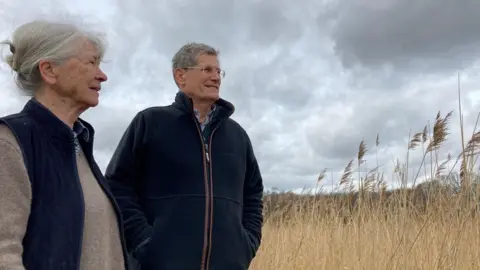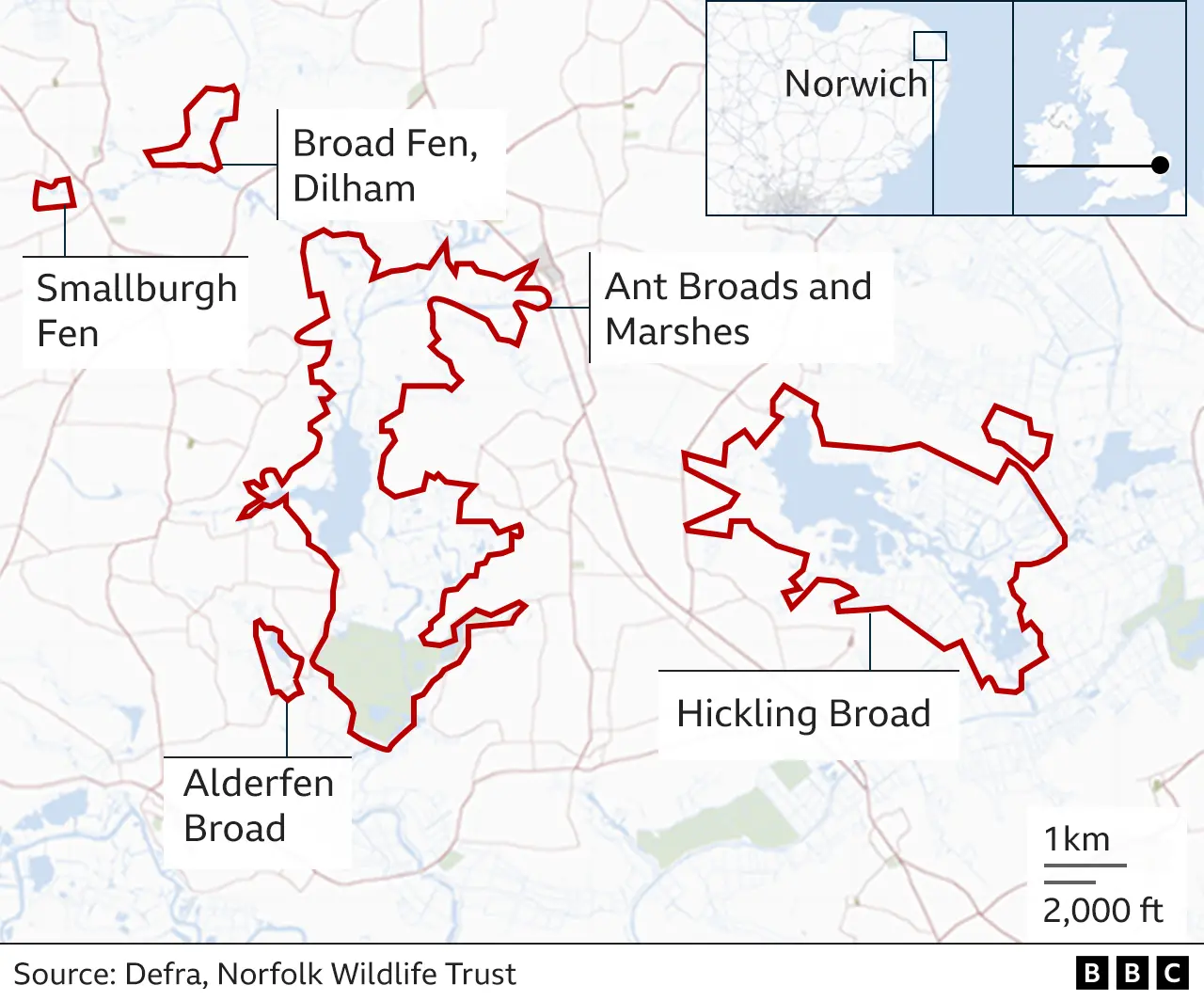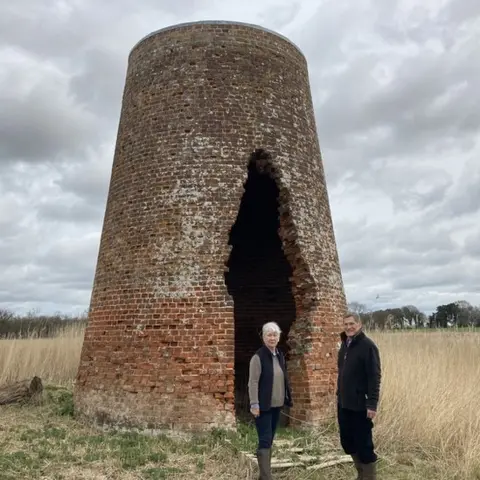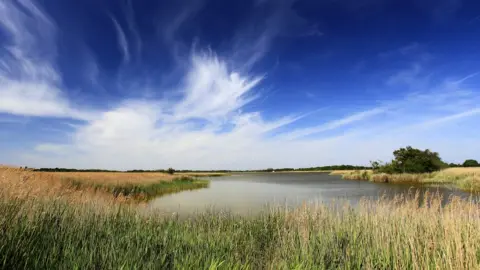The Broads: Couple launch legal challenge over water extraction monitoring plans
 BBC
BBCA couple who have spent years battling water abstraction in a national park are taking their fight to the High Court.
The Environment Agency (EA) set out plans last year to review the practice in parts of The Broads in Norfolk and Suffolk to determine its impact.
But Tim and Angelika Harris, who own part of Catfield Fen, say that review does not go far enough.
The EA said it was working to protect the areas in question.
Mr and Mrs Harris have been granted permission for a judicial review which will take place in July.
They said they felt they had a responsibility "to preserve these unique environments for future generations".

EA licences allow water companies and farmers to take water from rivers, lakes and groundwater aquifers.
In June 2021, the EA issued its findings and proposals relating to the environmental impact of 240 licences in the Ant Valley.
At the time, it said it would help protect the area - a Site of Special Scientific Interest (SSSI) - which was "facing significant water pressures, with evidence showing that current abstraction levels may be causing damage to the environment".
But Mr and Mrs Harris said the plans should include neighbouring sites such as Hickling Broad and Smallburgh Fen.
They said the practice of water abstraction was causing irreversible damage to the habitat in the area.
"The agency is using Brexit as an excuse to water down its duties to protect the environment," said Mr Harris.
At the judicial review, they will argue the EA should extend these investigations under the Habitats Directive, part of EU legislation which ensures conservation of rare animal and plant species in key areas.
At a hearing in February, the EA argued the sections of the directive cited by Mr and Mrs Harris did not apply in this case, and that its decisions could be made based on cost.

Catfield Fen, in the Ant Valley, along with nearby Sutton Fen, has 90% of the UK's rare fen orchids and swallowtail butterflies.
The area was at the centre of a public inquiry in 2016 which rejected an appeal over the EA's decision not to renew two abstraction licences.
To date, the couple have spent £1m on legal costs and conservation measures to protect what they say are the country's most valuable wetlands.
"The Ant Valley is rated as one of the finest, or the finest, unpolluted valley fen in western Europe and it's because it's a calcareous fen - these are very, very rare on an international scale," Mr Harris said.
"To give a sort of rough comparison, it's a bit like Chartres Cathedral or Westminster Abbey in environmental terms. It is as rare as that."
 Hugh Venables/Geograph
Hugh Venables/GeographThe National Farmer's Union (NFU) said farmers in the Broads recognised their responsibilities to protect the environment.
It added irrigation helped to produce more than 50% of potatoes and 25% of all vegetables and fruit grown nationally, with nearly half of production concentrated in East Anglia.
Kelly Hewson-Fisher, NFU water resources specialist said: "Our ability to meet this demand relies on access to a secure water supply, a supply that is coming under increasing pressure regionally due to factors including housing growth and climate change."
 Getty Images
Getty ImagesPenny Simpson, lawyer for Mr and Mrs Harris, said their legal battle was significant.
"It definitely could be a landmark case because it's shining a light on the extent to which public bodies such as the Environment Agency have to comply with duties that derive from European law," she said.
The EA said it was unable to comment due to the ongoing legal proceedings.
A spokeswoman said: "Since 2018 when our technical work began we have invested significant time in seeking long-term environmental protection for the Ant Valley, through identifying and implementing sustainable solutions for water and businesses.
"We have achieved this by working with farmers, businesses and in collaboration with other agencies. This activity has been conducted in addition to us performing our legal duties as regulator."

Find BBC News: East of England on Facebook, Instagram and Twitter. If you have a story suggestion email [email protected]
